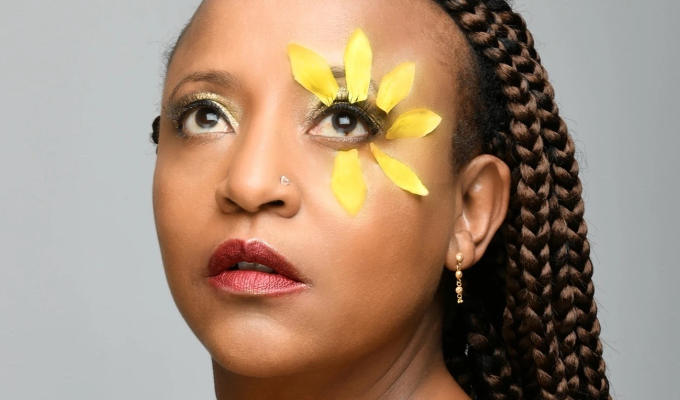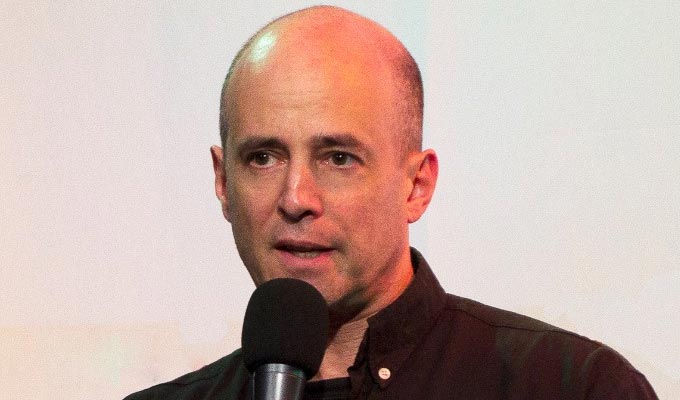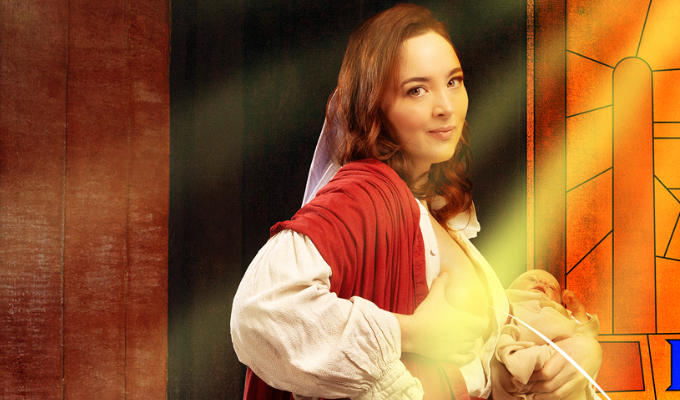
'Jokes are the sweeteners that make difficult subjects palatable'
Njambi McGrath on confronting colonialism with comedy
The runaway success of Richard Gadd’s Baby Reindeer and Hannah Gadsby’s Nanette are testament that no subject is off limit to comedy.
Long before them, I wrote a show in 2015 called Bongolicious, a raw account of my parent’s time in concentration camps in Kenya at the end of the British reign. This show shocked people but my audiences carried me through laughing and crying with me.
This was a complete shift from the material I did when I began doing comedy. I wasn’t sure what to speak about, and what I was doing at the start was a phoney persona. People saw right through it.
It wasn’t until the death of my father that I embarked on writing my memoir Through The Leopard’s Gaze the fog of confusion began to lift. I understood the propaganda against Africa was rooted in deep racism that justified colonialism and slave trade and the funding of coups and endless wars to stop Africans from progress. How then, was I going to turn my frustration and anger into a channel for healing and something more positive?
This combined with the endless portrayal of Africa as a place of death and the dying. When I came to the UK, I was astonished by this portrayal of Africans as a one-dimensional monolith of poor, diseased people awaiting rescue from white saviours. Those were some of the first pushback jokes I wrote pointing to some of the ridiculous charity commercials for Africa – particularly the one that talks about teaching Africans how to fish and yet most of the continent is desert.
Phrases like living on ‘less than a dollar a day, digging wells and toilets as well as walking for miles.’ Everyone made references to leftover food and starving Africans. I built a subconscious resentment. This was the very basis of the white supremacy which was enacted on Africans from slavery through to colonialism.
This became rich pickings for my comedy. A bountiful harvest of jokes which bore nine shows. Jokes work well if they are relatable and some of my best jokes are from this.And it all began when promoter giving me feedback after doing a spot for him said, ‘why don’t you talk about what you know?’
Slowly I began to learn how to steer difficult subjects. When doing a show in 2017, I was in the beginning of a joke that said African women are portrayed as objects to be saved from barbaric cultural practices and when I mentioned FGM a woman at the front row got up and walked out.
When she’d gone, I said if she couldn’t handle theory of FGM I doubt she’ll cope when I begin the practicals. The whole room erupted, and everyone was on my side and fully bought into the show. The essence of great comedy is born of truth, no matter how bitter or painful. Audiences are resilient and with a good joke rate you can win people over while injecting your truth.
Making people think and feel all sort of emotions deepens the appreciation of a good joke. Think of all the mighty comedians that came before us, like Richard Pryor who never shied away from his traumatic childhood and yet is remembered for his ability to make people laugh.
No topic is out-of-bounds so long as it’s not used as a tool of reenforcing harm or prejudice. Laughter doesn’t mean limiting your take on the world. When done well you can transport people into your world and make them see how you see things. Somethings are not obvious, like the propaganda against Africans which is not apparent unless people are well-travelled or lived that life.
At the end of my show Accidental Coconut, in which I spoke about British colonialism in Kenya, I waited at the door with my bucket and a very angry white man from Kenya looked at me in the face and asked why I was telling lies. I was like ‘that’s rich coming from a coloniser’.
Given that I had just got a standing ovation, I was taken aback by his anger and reaction. But the narrative always glorifies the hunter until the lion learns how to write. I realised that it was probably the first time an African had laid out the horrors unleashed on Africans by Kenyan whites. As a matter of fact, another man had run to the stage and given me a big hug for a brilliant show. What appears to frustrate him more was that the audience bought into what I was talking about and cheering at African victories.
Nigerian novelist and poet Chinua Achebe once said that if you don’t like the narrative, write your own. For decades, the West has pretty much controlled the narrative on Africa. And it’s shocking when I speak from the perspective of an African. It challenges people to hear uncomfortable truths and some people feel the need to apologise to me for what was done to Africans.
I am fortunate to have a platform which was denied to my parents who spent their formative years in concentration camps in Kenya. I feel that foundation of good comedy is born out of truth no matter how inconvenient. If told with conviction serious topics can affect change in attitude and jokes are the sweeteners that make difficult subjects palatable.
In a similar way to how we reward a pet with a treat, humour treats the audience with a reprieve, a show of gratitude for their listening to your truth. Comedy is ultimately about entertainment and making people laugh but then again sweet and sour is a delicacy enjoyed by many.
When at university, I listened to sour-faced lecturers using terms like The Third World? I grew up with a huge cross section of people rich and poor. Every country has that. All were individuals with traits that are identifiably human. The same Africans that defeated Europeans kicking them out of Africa. The very people who made slavery impossible because Europeans could not afford to keep quelling rebellions.
I have learnt the art of harnessing my anger and frustrations by writing jokes that push back on these anti African propaganda. This gave me a brilliant joke highlighting the portrayal as a justification for slave, trade, colonialism and the continued exploitation of Africa, and finish the routine with ‘don’t worry Africa has it’s revenge and found a punch line that erupts the room.
This is a great way to show people the skewed view of the portrayal of Africa but also get in a great joke which washes away the bitterness of the truth. I felt like announcing to everyone that it was all false and that Africa and Africans were better than that. But telling it in joke form lands even better because people listen and hear what point I was trying to make.
I feel I have found my voice and that voice is speaking about all the ills committed on Africans particularly my parents when they were just children. Like sugar coating a bitter pill, the effect of it is still felt. Laughter is the best medicine after all.
• Njambi McGrath’s stand-up show Benevolence is at the Gilded Balloon Patter House at 3pm.
Published: 18 Aug 2024






